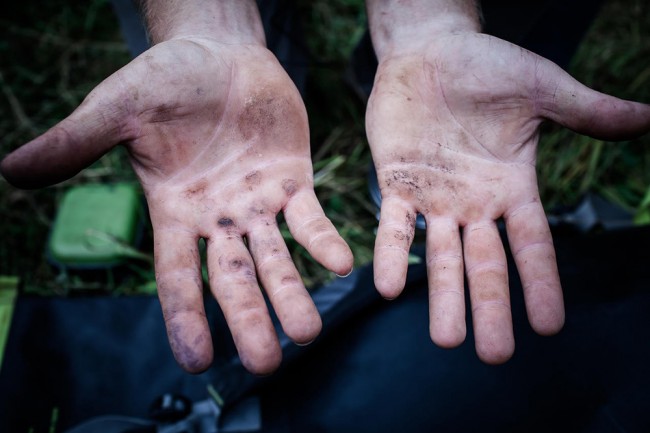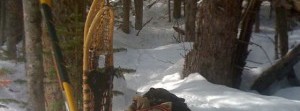
Photo Credit: Jonathan Taggart
Revolving Doors
It’s early morning in the Valley; the sun peeks over the eastern mountains. Mounds of snow around town are slowly starting to melt, and the once-massive accumulation on the roof is now only a few inches thick. Today you can hear the birds chirp and the drip, drip, drip of melting snow, signalling the beginning of another annual transformation.
The Northwest is a cyclical place, both naturally and, in some ways, economically. As the lunar New Year celebrations come to an end, the natural cycle begins again with the arrival of the first eulachon to the Nass River. Soon they’ll be running the Skeena, followed by spring salmon. Bears emerging from winter slumber aren’t far behind. The squawks of geese and high-altitude cranes will be heard overhead, as life returns to the forests and rivers with yet another season bearing down.
This time of year signals another transition, one of the labour force. Lift operators and ski guides prepare to move on and tree planters and fishing guides prepare to move in. Seasonal workers have become a staple in our modern economy and the Northwest sees a hell of a lot of them—the proverbial transient worker.
A short-lived phenomenon, transient workers consider themselves to be part of what’s known as the “gig economy”. They currently account for one third of Canada’s labour force and in places like northern BC, we rely on many of them to keep our businesses afloat. This precarious segment of the economy is growing, and although many transients have hopes of landing a more traditional lifetime job, the reality is that plenty continue to move from one place to the next for work, from one gig to another.
Next stop unknown
Last summer, Sydney Mitchell decided to make a change in her life. “Being in my hometown was kind of stressful,” she says. “After I graduated I had a decision to make: either stay in my hometown or see where life takes me.”
Mitchell had only been in the work force less than two years before she made the move to Smithers from Ontario last summer to work as a forestry technician, quickly falling in love with the landscape that drew her to the West.
But when the snow started to fly and the forestry company she works for laid her off for the winter, Mitchell decided to take a job with Hudson Bay Mountain Resort as an administrative assistant.
“You have to work with it,” she says. “I’m really glad there’s a ski hill here because it gives foresters and seasonal workers that opportunity.”
Mitchell is just one of a growing number of millennials that make up the majority of the gig economy. Although she would like to have long-term stability in her career, she admits that might not be possible, at least at this stage.
“It does bring up some anxiety for me, wanting to know where my next contract is,” Mitchell says. “With forestry work, it’s all contracts and they need to have the work before they give it out. That’s the kind of instability there is in forestry.”
She says she’s in a bit of a waiting game during the winter, not knowing if there will be enough work in the coming season to be hired back as a forester. Mitchell says it’s not feasible for her to stay in Smithers if there’s no work in the summer.
“I always have the option to go home, if BC doesn’t work,” Mitchell says. “But I want to make it work here and get my RPF. But to be completely honest it’s very stressful, working in a job that you don’t know where your next six to eight months is going to be. And once this job is up, I don’t know where I’ll go.”
The revolving door
In the media world, rural communities are hotbeds for green journalists. There seems to be a never ending revolving door of young journalists trying to make it in a profession that’s been through some turbulent times lately. Every few months we see a new face in the paper or hear an unfamiliar voice on the radio.
For Enica Benedikt making the transition into news journalism was no small task, especially as it meant she’d have to venture 5,000 kilometres across the country.
“I’m from Toronto and I applied for a broadcasting job in Prince George, but an opportunity came up here and they offered me a position in Smithers,” Benedikt says. “I had never heard of this place or been to BC, so I said sure.”
When she first arrived, Benedikt wasn’t having much luck finding a rental and ended up sleeping on a couch for a couple months before getting settled. It’s an added stress, not having your own space as you begin a new job in a strange place. Benedikt is trying to make it work.
“This was completely new to me; I was actually shocked trying to find somewhere to rent,” she says. “Even the place I did find, which is very nice, is only for two months because [the landlord] already has someone else planned to come in the Spring.”
The job that brought her didn’t end up working out. She’s now looking elsewhere for work and thinks her stay in Smithers will be relatively short.
“I’m already looking at other options in other cities just for work,” Benedikt says. “I didn’t expect this when I decided to be a journalist. I’m reporting on homelessness and precarious housing and even I’m one of these people experiencing that here.
“I think planting yourself helps you mentally and professionally,” she continues. “I think you need to feel like you have a home, a place you can regroup. So this has definitely been challenging.”
Although Benedikt admits to anxiety not knowing where the next paycheque is coming from, or where she’ll hang her hat in the next few months, she’s determined to make a go of it if she can.
“I guess ultimately you could always go home if necessary, I just don’t want that as an option,” Benedikt says. “If you have a dream and this is just how it is, then you’re creating something on your own. I really want to try and keep this going. There is so much to see and learn about yourself. I’m in it for the long-haul.”
Home sweet home
Hundreds of stories in the Northwest follow a similar trajectory. We come for work and some of us stay a short while and move on, while others remain indefinitely. This place has a tendency to grab hold and never let go. For Laura Pattison that’s exactly what happened.
Raised on Haida Gwaii, Pattison is co-owner of Moresby Explorers, a guide-outfitting company in Sandspit. She’s explored many other locations to live and work over the years, but when the opportunity came up to have fulfilling, long-term work near home, she and her partner Heron knew it was the right decision to stay on-island.
“For both of us,” Pattison says, “our decision to remain on Haida Gwaii was influenced by the work we were able to find here as well as other factors. It was never a hard and fast decision to stay, and we’ve both tried out living in other places at various times in our lives. But I think for both of us Haida Gwaii has always been high on our list of favourite places in the world, and since we were able to find satisfying jobs here, it made sense to stay.”
For outdoor enthusiasts, Moresby Explorers operates in one of the most beautiful places in the world. It’s a guide-outfitter’s dream, exploring the far reaches of BC’s scenic archipelago. But finding long-term employees continues to be a major challenge for Pattison.
“We would ideally like to hire a lot of our staff from on-island, as those folks are likely to have a good base of knowledge to lead tours in the area and are more likely to be long-term employees,” says Pattison. “However, it’s actually not that common to find the staff we need on-island, due to having a small population to draw from. Most people are looking for year-round work, or positions that pay better than tourism. So we end up hiring a lot of staff from other places.”
Moresby Explorers usually employ about 12 people in the summer and keep just two or three year-round—including the owners themselves. Despite the fact that some of their employees have moved to the islands full-time, it’s still a challenge to retain seasoned guides simply because the act of seasonal work is not appealing to everyone.
“In terms of employee retention, I think the biggest challenge is simply the lure of full-time positions elsewhere,” Pattison says. “Most of our staff who leave do so because they want to take a year-round position somewhere else, usually off-island. We’ve built some really successful relationships with employees who prefer seasonal work and have ended up working many seasons for us, either working the winter season in some other aspect of the tourism industry, or just travelling and hanging out in the winter.”
As seasonal and temporary employment continues to grow in Canada’s shifting economy, the best approach to finding satisfying work seems to be adaptability.
“I think to have a sustainable living here it helps to be willing to do a wide variety of jobs,” Pattison says. “When we first started running Moresby Explorers we took random jobs in the winter months to help cover costs. Now, as tourism on the islands grows, we’re lucky enough to be able to sustain ourselves year-round from our business.”
As in all small communities, it pays to work together and in Pattison’s case that means helping out your neighbours to ensure a sustainable economic future for all.
“I think when running a business in a small, remote community it’s really important to consider how your business is intertwined with the rest of the community. Suggesting that our clients spend an extra day in a local B&B and eat at the local restaurant can help those businesses as well. So I think part of sustaining our own livelihood is doing our part to make sure the entire community is sustainable.”
Special thanks to Jonathan Taggart and Chris Wheeler for the use of their photos. You can see more of Chris's work at chriswheeler.ca





